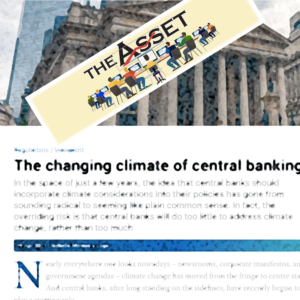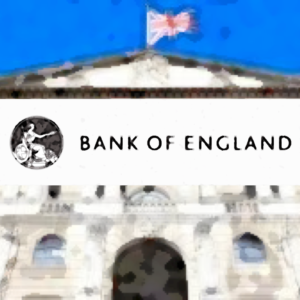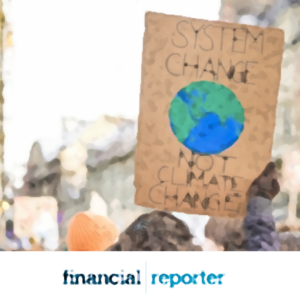Central Banks
News
Central banks have issued statements that climate change poses a major risk to financial stability and the economy — but no consensus has yet been reached regarding policies to fund climate mitigation. This may change given that the Bank of England has been requested to align its policy with “net zero” carbon. Please contact us with any news that you think should be listed.
§
BIS
June 2021
The Green Swan Conference (Panel S)
(YouTube)
The Bank for International Settlements co-sponsored a virtual conference on “How in practice can the financial sector take immediate action against climate change-related risks?” The speakers discuss how central banks can respond to climate change, manage expectations, balance actions, and communicate, contribute and coordinate with other important actors.
FORBES
27 June 2021
Why Central Bank Digital Currencies (CBDC) Now And What They Could Mean For Climate Change?
(Article)
According to Frank Van Gansbeke, major Central Banks across the world are in a race to deliver digital money. Van Gansbeke explains why Central Bank Digital Currencies (CBDC) could have implications for climate change.
The Asset
19 April 2021
The Changing Climate of Central Banking
(Website)
Isabelle Mateos y Lago, from BlackRock, comments on central banks responses to climate change. She argues that it is time for a coordinated international response from monetary and financial authorities. She writes that the overriding risk is that central banks will do too little, rather than too much, about climate change. Market neutrality will be an increasingly untenable option for central banks, she writes.
Forbes
13 April 2021
To Accelerate Climate Action, U.S. Regulators Must Coordinate With Global Peers
(Website)
David Carlin reports that the Biden Administration has pledged to use a “whole of government” approach to combat climate change. This includes the Securities and Exchange Commission (SEC), the Federal Reserve (Fed), and Treasury Department. Carlin points out that the Fed, SEC, and Treasury Department can accelerate climate risk disclosures.
OMFIF
14 April 2021
It’s time for a coordinated international response from monetary and financial authorities.
(Website)
Nick Robins, Simon Dikau and Ulrich Volz report that nearly 130 governments are considering net-zero carbon. Banks and investors are committing to net-zero by 2050. Central banks and supervisors are starting to explore how they can help. Interestingly, they write that although monetary policy can play a role, and that the core responsibility rests with governments.
Financial Reporter
4 March 2021
Bank of England instructed to align monetary policy with net zero target
(Website)
“Central banks have the power to make or break the government’s climate commitments, with the ability to realign billions of pounds away from fossil fuels and towards green alternatives.”










